According to a recent ABA survey, many law firms are not well protected from the multiple cyber threats that attack company networks every day.
Some of the findings were that less than 50% of law professionals use two-factor authentication to protect their accounts, and only 26% use web filtering to block malicious websites.
It’s easy to get a false sense of security if nothing has gone wrong recently. But the fact is that ransomware attacks, spyware, and credential theft continue to be on the rise. If your firm suffers a data breach or malware infection, the costs can be high.
The average cost of a ransomware attack is between $732,520 – $1,448,458.
Losses from a data breach or malware infection come in multiple forms:
- Downtime costs
- Lost opportunities
- Loss of client trust
- Emergency IT cleanup costs
- Lost productivity
- Harm to reputation
- Potential data privacy compliance penalties
How secure is your Chicago law firm’s business network and data?
We’ve got several steps you can take to ensure your firm has solid cybersecurity protection.
Cybersecurity Safeguards to Protect Your Law Office from Breaches
We’ll start with the outer network protections and then work our way in, going over application protections, device protections, and data protections. A good cybersecurity strategy takes a layered approach to mitigate as much risk as possible.
1. Use a Next-Gen Firewall
A firewall protects your network by monitoring all incoming and outgoing traffic. A next-generation firewall will have advanced threat protection that uses AI to detect malicious behavior. This helps the firewall catch new or zero-day threats that may not be in a known threat database yet.
Firewalls protect all devices connected to a network at your office.
2. Add a Business VPN for Remote & Mobile Workers
Many lawyers connect to firm data while working at home or from a courthouse, and those connections will be outside your on-premises firewall. To encrypt those connections, you should have all employees use a business virtual private network (VPN).
A VPN adds a layer of security by encrypting the data traffic, even if someone is on a free, unsecure Wi-Fi.
3. Use Two-Factor Authentication
Hacked or stolen login credentials are responsible for 77% of all cloud account data breaches. Employees should use a strong password, but that’s not going to protect you all the time, because people often reuse passwords across both work and personal accounts, leaving those logins more vulnerable.
The best way to prevent a breach of any of your cloud accounts is to enable two-factor authentication (also called multi-factor authentication). According to Microsoft, just that one extra step of having to enter a passcode with a login stops 99.9% of all account hacks.
4. Control Cloud Access with a CASB
A cloud access security broker (CASB), such as Microsoft Cloud App Security, helps you enforce standard data security policies across all your cloud applications, even if they’re from different vendors.
Using a CASB also allows you to monitor access to your law firm’s cloud business accounts and identify the use of any shadow IT. It can also be used to check different cloud apps for data privacy compliance.
5. Use a Mobile Device Manager
A majority (60%) of an average company’s network endpoints are now mobile devices. Yet, many law firms aren’t properly managing employee use of smartphones that have access to sensitive business data.
A mobile device management application improves security by allowing you to:
- Monitor mobile access to your data
- Remotely push new software or security updates
- Remotely lock or wipe a device
- Grant or revoke access to your data remotely
- Supports company data security policies (do not copy, share, etc.)
6. Keep Devices Protected with Updates & Antivirus
All devices – computers, servers, mobile devices – should be protected with antivirus/anti-malware and receive regular updates to ensure any vital security patches are installed.
An easy way to make sure no devices fall through the cracks is to use managed IT services to have all of them protected by an IT professional.
7. Email & Web Filtering
Two important protections against phishing (which is the #1 delivery method for malware) is to add email filtering and web filtering.
Email filtering will keep malicious phishing emails out of user inboxes, reducing the risk of an accidental click. Web filtering blocks malicious phishing sites if a user has accidentally clicked a dangerous link.
8. Use Data Security Labeling Policies
One of the best ways to ensure data is protected is to apply data protection policies using a labeling strategy. You can use a system like sensitivity labels in Microsoft 365, which allows you to automatically add security protections to files and emails based upon a security labeling scheme.
You can use protections like encryption, do not copy, and watermarks and even have them automatically applied based upon document keywords.
It’s Time to Put a Layered Cybersecurity Strategy In Place
ProdigyTeks can help your Chicago law firm put the cybersecurity and data protection plans in place to ensure your network, devices, and data are secure.
Schedule a free phone consultation today! Call 312-600-8357 or reach us online.



Leave a Reply